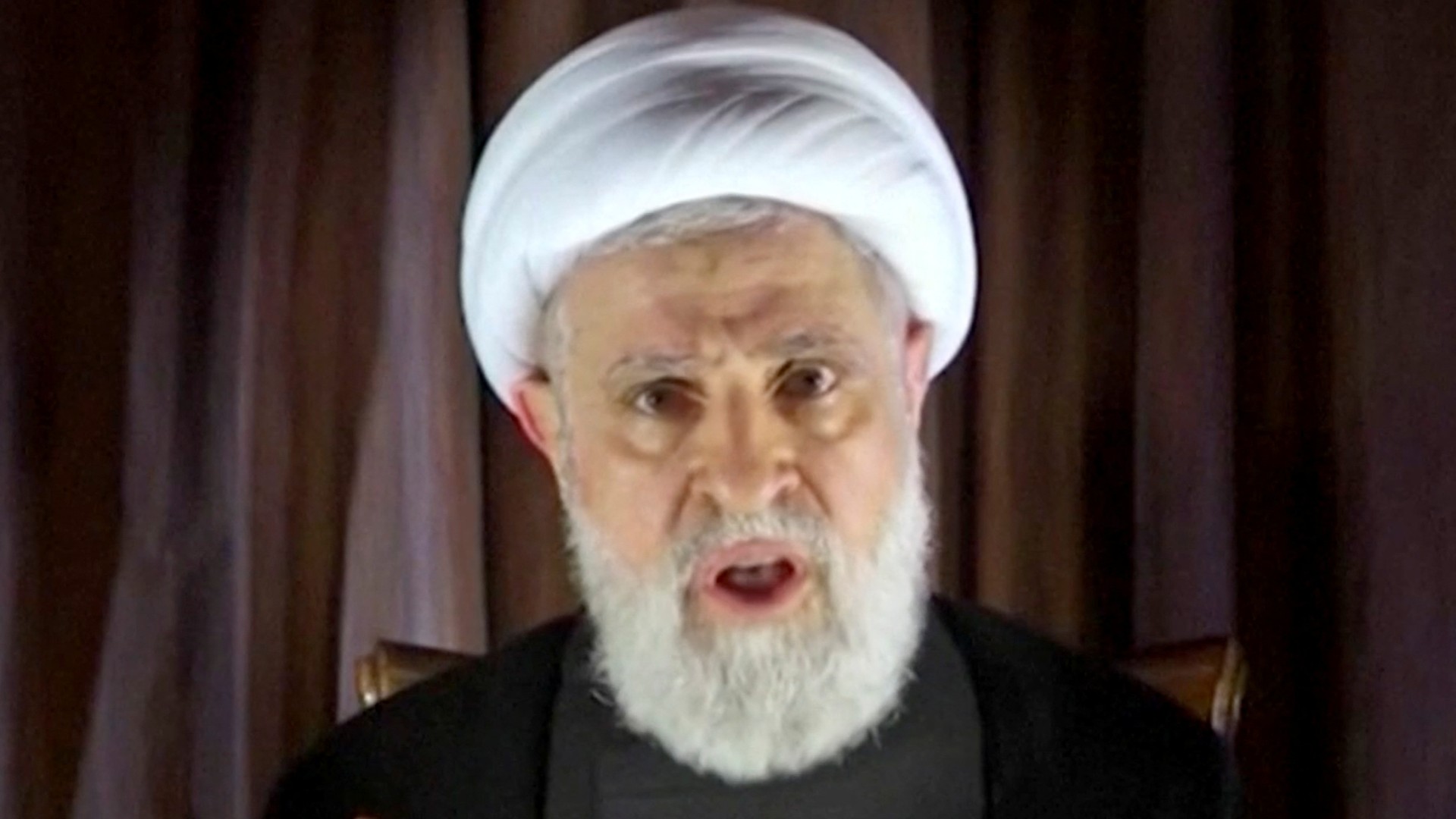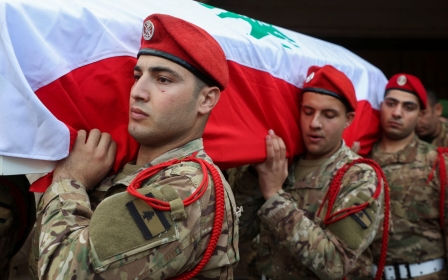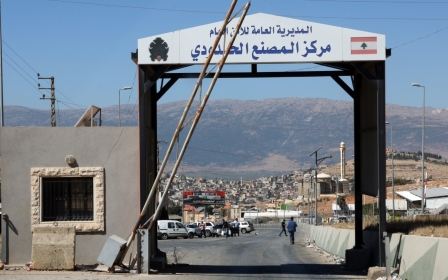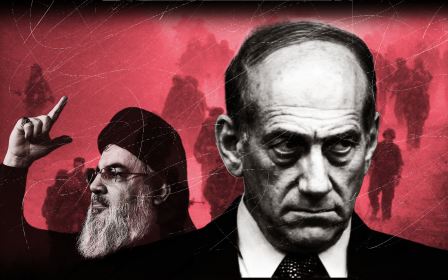More Israeli troops deployed in Lebanon as Hezbollah strikes soldiers in Labbouneh
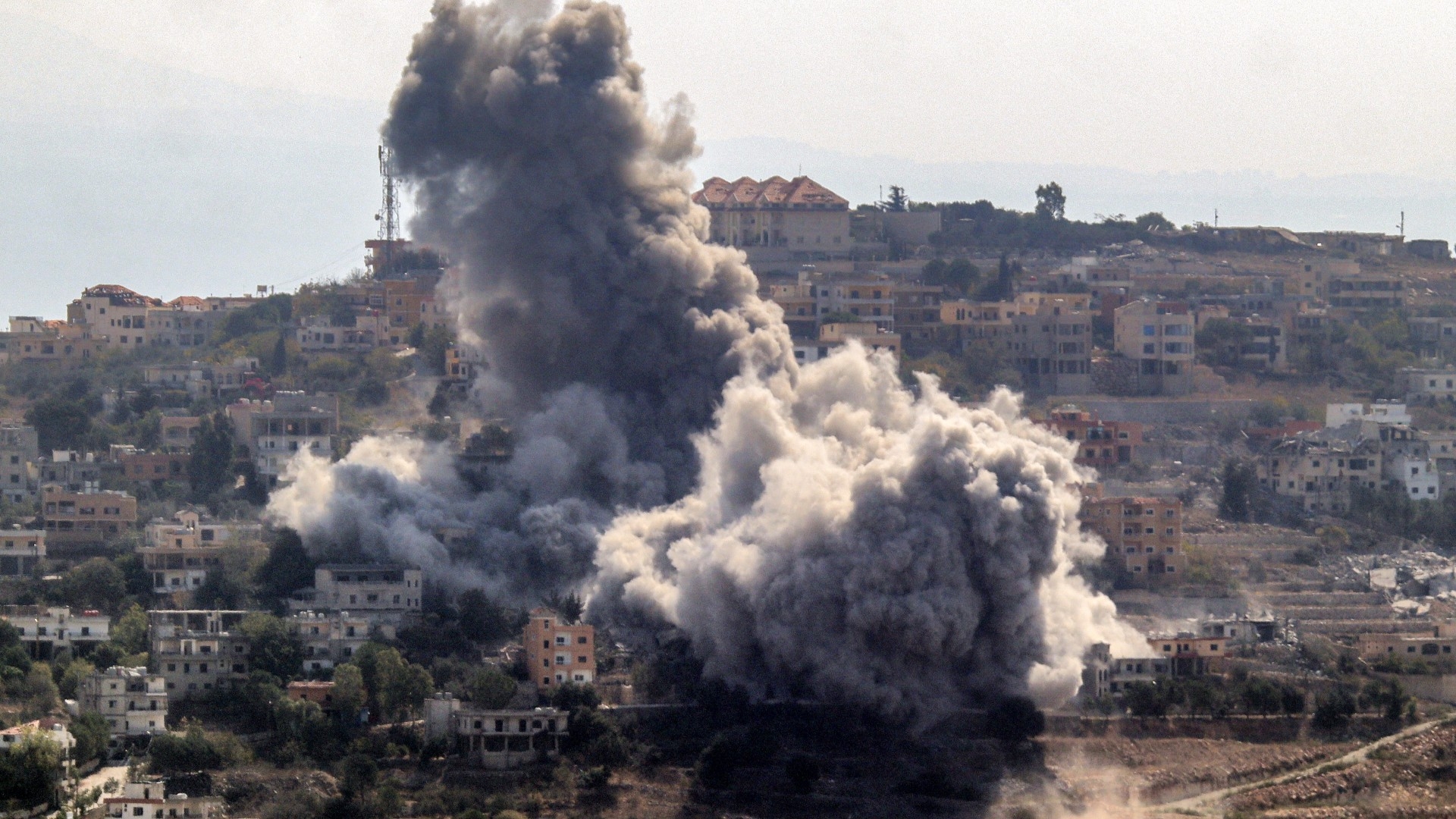
The Israeli army has deployed a fourth division to join its ground offensive in southern Lebanon, as Hezbollah claimed a significant attack on invading forces in Labbouneh.
Earlier on Tuesday, Hezbollah's deputy leader Naim Qassem delivered his first recorded speech since the killing of Hassan Nasrallah, in which he said Israel's land invasion had "not advanced" and suggested his movement was ready for a ceasefire.
The Israeli military's 146th Reserve Division began operations in Lebanon on Monday night, just hours after the entry of a third division had been announced.
The recent mobilisations indicate that there may now be over 15,000 Israeli troops in Lebanon.
Hezbollah said on Tuesday that its fighters had attacked Israeli forces in Labbouneh near al-Naqoura in Lebanon's southwest, where Unifil, United Nations peacekeepers, are headquartered.
New MEE newsletter: Jerusalem Dispatch
Sign up to get the latest insights and analysis on Israel-Palestine, alongside Turkey Unpacked and other MEE newsletters
"As an enemy Zionist force advanced... towards the border area of Labbouneh, supported by bulldozers and vehicles. Our fighters rained artillery and rocket fire on them, causing confirmed casualties and forcing them to retreat," the movement said in a statement reported by al-Mayadeen.
Hezbollah accused the Israeli army of using Unifil forces as human shields, and said its fighters would not attack Israeli troops, who had moved behind UN peacekeeping positions near border villages.
Israel's army said 30 soldiers had been wounded in the past 24 hours on the Lebanese border.
'The Israeli enemy has not advanced'
The clashes came as Hezbollah deputy leader Qassem said that his group's capabilities remained "solid", despite Israeli claims that it had significantly weakened them following weeks of massive attacks.
"We are striking them. We are hurting them and we will prolong the time. Dozens of cities are within range of the resistance's missiles," Qassem said.
"Our military capabilities are fine. What our enemies say about our fighting capabilities is an illusion. They are lying," he added.
Qassem described Hezbollah's front line as "solid" and said more Israelis will be displaced from their homes in Israel's north as hostilities escalate.
"The Israeli plan is to kill Lebanese civilians and empty villages to cause chaos," he said. "But I tell them, your efforts are a failure."
Qassem denied the invasion was making progress, saying "the Israeli enemy has not advanced".
He also expressed support for efforts led by key Hezbollah ally and Lebanese Speaker of Parliament Nabih Berri to bring about a ceasefire.
Israeli Defence Minister Yoav Gallant claimed on Tuesday that the likely successor of Nasrallah, Hashem Safieddine, had also been killed.
It's been widely believed that Safieddine, a senior Hezbollah official, would be Nasrallah's successor. However, he has reportedly not been in contact with the movement since a massive Israeli strike on Beirut's southern suburbs last week.
"Hezbollah is an organisation without a head. Nasrallah was eliminated, his replacement was probably also eliminated," Gallant said during a briefing at the Israeli military's northern command centre. He didn't name which replacement he had been referring to.
"There's no one to make decisions, no one to act," he claimed.
Qassem said during his speech that every commander Israel has assassinated has been replaced, and that a new secretary general would be appointed following Hezbollah's protocols.
Minutes after the recorded speech aired on Tuesday, at least two Israeli air strikes struck Beirut's southern suburbs, nearly hitting a bridge that leads to Beirut's airport.
Over 100 rockets fired at Haifa
At the same time, Hezbollah rockets rained down on northern Israel.
The Israeli army said that over 100 rockets were fired at Haifa from Lebanon in two barrages, the largest salvo the city has witnessed since the start of the Gaza war.
The first barrage consisted of 85 rockets, while the second had around 20, the military said. Video footage circulating online appeared to show damage in some streets but no casualties were reported.
In Gaza, Israeli tanks were sent deeper into Jabalia refugee camp in the north, a day after intense bombardment there killed 17 people.
The Israeli army sent messages to Palestinians in Jabalia and nearby Beit Hanoun and Beit Lahiya ordering them to leave their homes.
However, the interior ministry in Gaza told residents in the north not to leave, stating that Israel had previously issued such expulsion orders but did not ensure safe passages for civilians.
Gaza's health ministry, meanwhile, said that 56 Palestinians had been killed in Israeli attacks on the enclave in the last 24 hours, bringing the death toll to 41,965 killed since 7 October.
Additionally, 97,590 people have been wounded since the start of the war.
Middle East Eye delivers independent and unrivalled coverage and analysis of the Middle East, North Africa and beyond. To learn more about republishing this content and the associated fees, please fill out this form. More about MEE can be found here.


